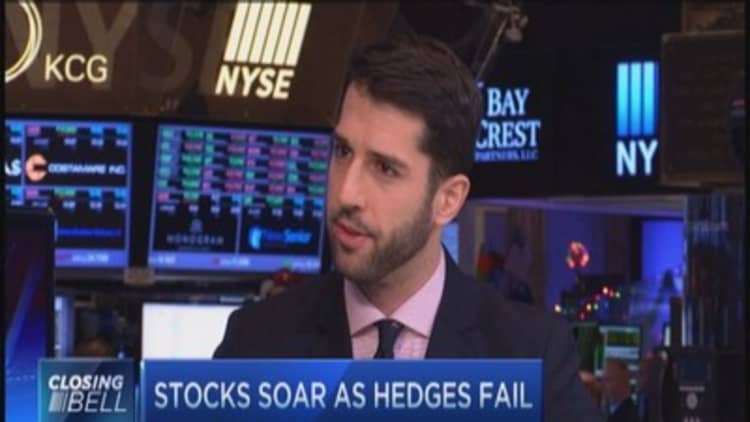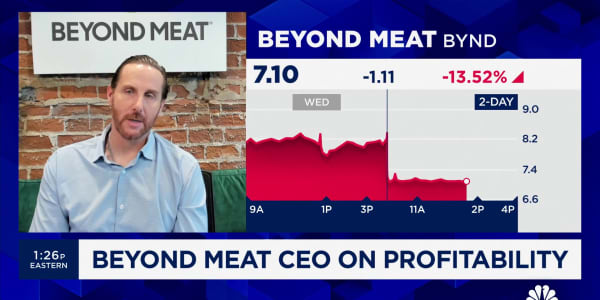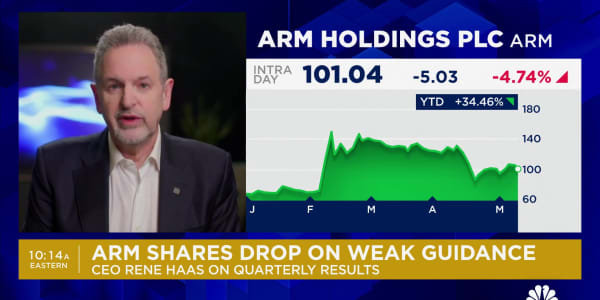Julian Robertson and his Tiger Management are famous for producing a slew of highly successful hedge fund managers. More recently though, the famed investment family has been in the news for firms shutting down, including Cascabel Management earlier this week and at least six others over the last three years.
While that number may appear high, a closer examination of the varied reasons for each fund shutting down—including Tiger Consumer Management for personal reasons, TigerShark Management for performance and Tiger Asia Management for legal issues—and broader context of other successful seeds suggest that the Tiger bloodline remains strong despite some stumbles.
"Yes, a few people have left the business, but it's no trend. People have been predicting the downfall of Tiger for years. That's a bad bet to make," said Bill Richards, a former senior hedge fund relationship manager at UBS who has worked with Robertson and the Tiger family of funds since 1983.
Now a billionaire, Robertson ran Tiger as a hedge fund firm from 1980 to 2000. It peaked at $22 billion in assets and averaged net returns of about 25 percent a year.
An elite group of investment professionals who worked under Robertson went on to found their own multibillion-dollar firms. Prominent so-called Tiger Cubs include some of the industry's biggest names, such as Andreas Halvorsen's Viking Global Investors, Chase Coleman's Tiger Global Management, Stephen Mandel's Lone Pine Capital, Lee Ainslie's Maverick Capital and Philippe Laffont's Coatue Management.
Since returning outside capital in 2000, Robertson focused on providing start-up capital to promising young money managers.
Tiger has seeded about 50 firms overall; of the 27 that it remains invested in, many still work out of Tiger's headquarters at 101 Park Ave. in New York and have combined assets of $31 billion, according to a person familiar with the situation. "Tiger seeds" that now manage $1 billion or more include Tiger Global (Coleman was also seeded after he left), Nehal Chopra's Ratan Capital and Ben Gambill's Tiger Eye Capital.
Read More Hedge fund spending $70M for these tech stock ideas
Tired of the game
Several recent shutdowns have been more due to individual fatigue than poor performance.
"Managing a fundamentally driven, long/short equity hedge fund is rewarding but demanding work. I have decided after nearly 15 years of doing so, at this stage of my life, I would like to spend more time with my family," Tiger Cub Patrick McCormack told investors in his Tiger Consumer in a March letter. The firm managed $1.2 billion at year-end 2014, according to a public filing.
Another Tiger Cub, Joho Capital founder Robert Karr, also cited personal reasons for quitting last year.
"Over the past 17 years, my energy and focus centered around three priorities: my family, our foundation and Joho," Karr wrote in an January 2014 letter to investors obtained by industry news provider Alpha. "Joho, as might be expected given the nature of the industry, has often received the greatest share of that energy." Joho managed $7.4 billion as of Dec. 31, 2013, according to a filing.
John Thaler also shut his JAT Capital after eight years in May, saying, "It is the right moment to take a break, spend time with my young family and determine which path to pursue next," according to a letter sent to investors of the then $1.7 billion firm. Thaler might be considered a Tiger "Grand Cub"; his former boss was Chris Shumway, a Tiger Cub who transitioned his own Shumway Capital into a family office in 2011.
"There's a huge level of commitment and personal sacrifice managers make to excel," David Saunders, CEO of hedge fund allocator K2 Advisors, said of what he called a mounting trend of shutdowns. "Once they've hit the right dollar number in their head it's no surprise to see some of them want to reprioritize their life." Saunders is a longtime investor in Tiger-related funds and a friend of Robertson's.
Some losses
To be sure, some funds appear to have closed because of poor performance.
Axial, the once-$1.8 billion firm seeded Robertson, said it was shutting down in late 2013 after several years of losses fueled by short bets against stocks.
TigerShark, a small hedge fund manager led by Tiger Cubs Tom Facciola and Michael Sears, also said it would shut in March, according to Bloomberg. The firm, also a Tiger seed, was reportedly hurt by bets against stocks. TigerShark managed $154.6 million as of Dec. 31, 2014, according to a filing.
One of the hallmarks of Tiger training was to bet both for and against companies, expressed by going long or short their stocks. While most Tiger family funds usually have more long investments on than short, betting against companies in the post-2008 bull market has generally been a losing strategy.
The reasons for Cascabel, the latest Tiger seed to shut, were not clear. But the fund lost 9.4 percent since June 2011, according to performance information obtained by CNBC.com. That compares to a gain of 68.5 percent for the Total Return index. The firm, founded by Laurence Chang and Tiger Cub Scott Sinclair, managed just $76.9 million as of April 30, according to the same document.
Hedge fund investors showed some sympathy for managers losing on shorts.
"After six years of a partially artificially driven roaring bull market in both equities and bonds, where correlations have been high and dispersion low, the shutdown of these Tiger Cubs reminds me of the shutdown of Julian Robertson's Tiger hedge fund in 2000—marking perhaps the end of that cycle and the beginning of a cycle where investors will have wished they were hedged," Mike Hennessy, co-founder of hedge fund allocator Morgan Creek Capital Management, said in an email.
Robertson's fund was highly successful overall but stumbled on a bad yen bet and then on value stocks just before the technology bubble-fueled market crashed in the spring of 2000. When Tiger returned outside capital then, it managed just $6.5 billion.
Read More Chanos up as many shorts stumble

Another shutdown, Tiger Asia, appears to have been related to unique legal issues.
Manager and Tiger Cub Bill Hwang settled insider trading charges with the Securities and Exchange Commission and paid a fine in December 2012, among other penalties. The fund had averaged about 16 percent returns each year from 2001 to 2012, according to a person familiar with the returns. It is now a private family office, renamed Archegos Capital Management.
Other strong Tiger seeds recently, according to performance obtained by CNBC.com include Hound Partners (up 16 percent in 2013 and 10 percent in 2014); Tiger Eye (38 percent and 4 percent); Tiger Legatus (22 percent and 5.5 percent); and Tiger Pacific (15 percent and 24 percent).
Current Tiger seeds to manage $1 billion or more, a traditional benchmark of power for hedge funds are: Tiger Global, Tiger Ratan, Bloom Tree Partners, Hound Partners, Miura Global Management, Nezu Asia Capital Management, Tiger Eye and Trient Asset Management, according to a person familiar with the situation. Overall, Tiger has sponsored the creation of 17 firms with assets that grew to surpass $1 billion.
That compares to average peak hedge fund assets of $896 million and median assets of $132 million, according to data tracker HFR as of the first quarter. The average life of a hedge fund is seven years.
A seed traditionally comes with a stake in the business and a share of fee revenue from other clients. Managers have then bought out Tiger's stake after significant growth.
A spokesman for Tiger Management declined to comment. Other firms mentioned in this report would also not comment or did not respond to requests.
Despite some fund stumbles, observers like Richards—who now runs hedge fund advisory firm WBR Advisors—remain impressed with the Tiger dynasty overall.
"Julian's record of mentoring and picking talent," he said, "is virtually unparalleled in hedge funds."






